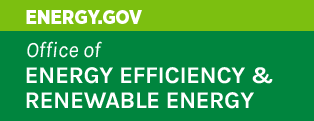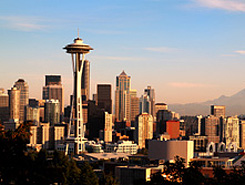Western Washington Clean Cities and Communities
The Western Washington Clean Cities and Communities works with vehicle fleets, fuel providers, community leaders, and other stakeholders to identify community-driven choices that save energy and promote the use of alternative fuels and advanced vehicle technologies in transportation.
Contact Information
General Stats
- Designated: August 13, 1998
- Population: 5,384,750 (based on 2024 Census estimate)
- Area: 21,247 sq. mi.
- Local/Regional Service Area: Counties (including tribal lands): Clallam, Grays Harbor, Jefferson, King, Kitsap, Lewis, Mason, Pacific, Pierce, San Juan Island, Skagit, Snohomish, Thurston, Whatcom
Alternative Fueling Stations
Including public and private stations

- Biodiesel (B20 and above): 19
- Electric (charging outlets): 6,499
- Ethanol (E85): 8
- Hydrogen: 1
- Natural Gas: 18
- Propane: 51
Energy Use Impact*
Annual Energy Impact
Annual Energy Impact by Alternative Fuel Vehicle Project Type
Emissions Reduced*
Annual Emissions Reduced
Emissions Reduced by Alternative Fuel Vehicle Project Type
*2023 DOE-Verified Metrics

Brian Trice (acting)
Brian Trice is the acting Director for Western Washington Clean Cities and Communities.
Learn about just some of the projects from Western Washington Clean Cities and Communities. Visit the Western Washington Clean Cities and Communities website for more projects and information.
Projects and Case Studies- Aggregated Alternative Technology Alliance
- Making the Business Case for Smart, Shared, and Sustainable Mobility Services
- Safety Training and Design, Permitting, and Operational Guidance for Garage Facilities Maintaining and Parking Natural Gas, Propane, and Hydrogen Vehicles
- Equitable Mobility Powering Opportunities for Workplace Electrification Readiness (EMPOWER)
- Drive Electric USA 2
- Microgrid Opportunities: Vehicles Enhancing Resiliency (MOVER)
- Seattle Rideshare Fleet Adds EVs, Enjoys Success
- Washington School District Cuts Costs and Improves Air Quality with Propane Buses
- Sea-Tac and Alaska Air Group Achieve Sky-High Results with Electric Ground Support Equipment

